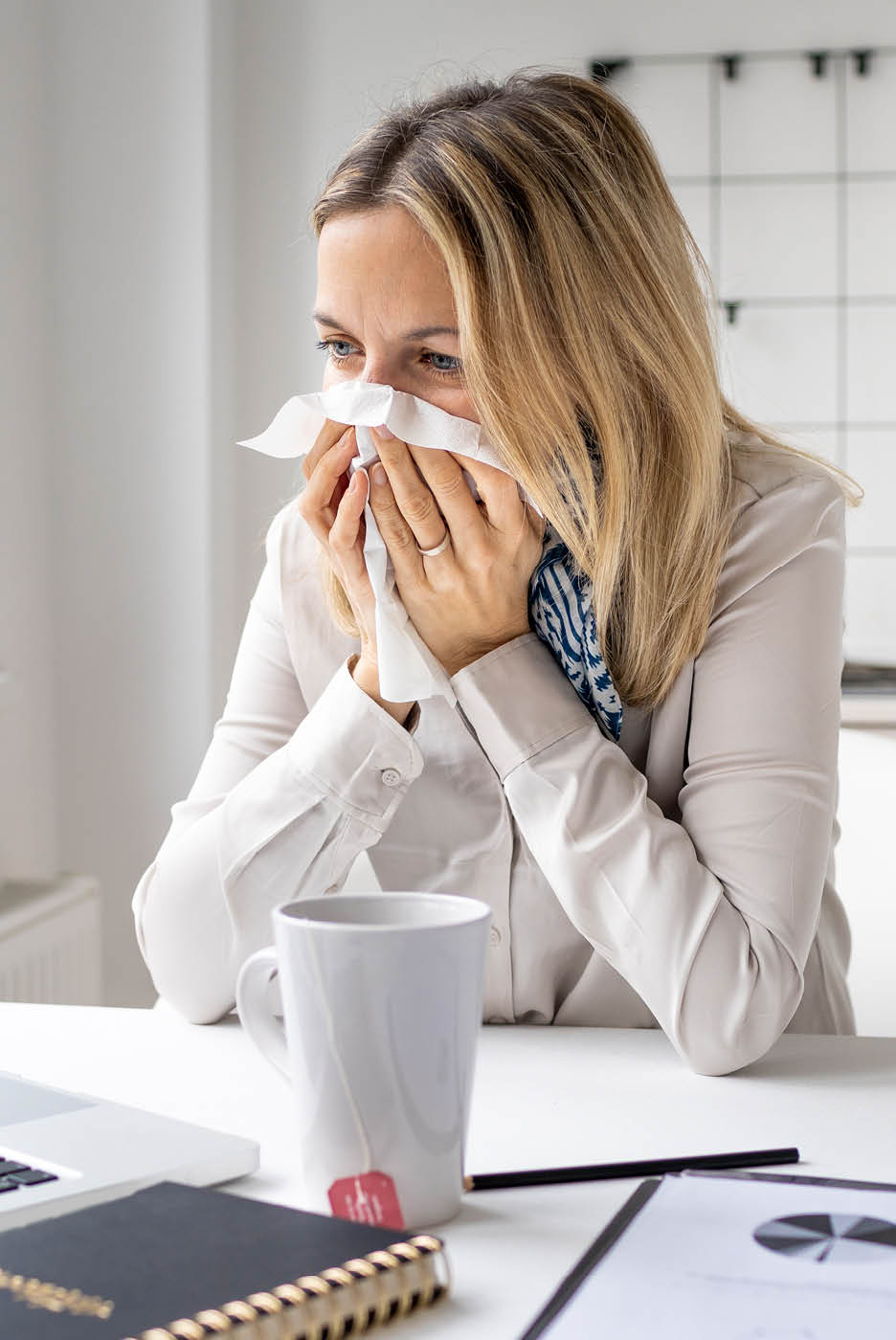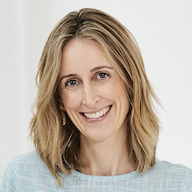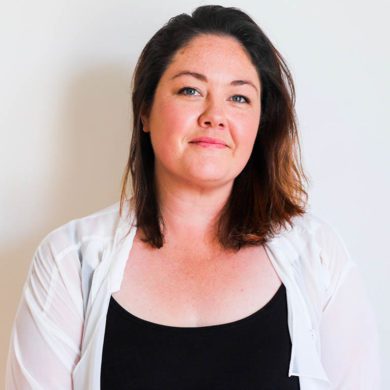One Saturday morning in May, I woke up with a headache and a suspiciously aching body. A rapid antigen test confirmed what I already knew: I’d finally succumbed to Covid-19, and I spent the next 48 hours shivering on the sofa, lifting my head only to swallow painkillers and call out weakly for another cup of tea.
By Monday, I was feeling… the same. But with client deadlines looming and the kind of guilt that only a product of the Catholic education system can understand, I dutifully turned on my computer and settled in to answer emails and plan my week. “Please don’t work while you’re sick,” implored my co-founder Anna, who just two weeks previously had done exactly that. I ignored her. After all, I could sit up, couldn’t I? And I only became breathless if I carried a really large load of washing to the machine.
There are few scientific studies into the effects of working while ill with Covid-19, but doctors have long advised that you recover quicker and better from a viral infection if you take adequate rest. Yet like many Australians, I could not step away from my computer, even if my quality of life depended on it.
It’s hard to say how many of us have worked through Covid-19, even if we’ve rested for the first few days of the illness. But Chloe Hamman, Director of Product People Science at Culture Amp, an employee experience platform that collects data from thousands of companies, has some interesting insights.
Doctors have long advised that you recover quicker and better from a viral infection if you take adequate rest
“Towards the beginning of the pandemic, I added some questions into our clients’ employee surveys about taking time off,” says Hamman, who had a hunch that people weren’t logging off while ill. “We found 70 per cent of people in Australia said they were taking time off when sick. We also asked whether employees were able to switch off from work effectively and make time for rest – and 50 per cent said they couldn’t.
“So nearly half of employees are not taking time off or feeling that they can actually switch off from work and make time for rest.”
Women, in particular, report difficulty in achieving a comfortable work-life balance, adds Hamman: “If you’ve got more responsibilities, taking time off feels harder.”
That’s certainly how Lee-Anne Whalley felt when she contracted Covid-19 last month. A single mum to a nine-year-old daughter, Whalley took four days off – around a weekend – then fired up her computer for a morning of meetings, despite what she describes as terrible brain fog. “I got through them but to be honest, I wasn’t really focused,” she says, adding that the notes she took made her question whether it was worthwhile attending.
If you’ve got more responsibilities, taking time off feels harder
Having only started in her marketing role in March, Whalley says she was aware of not having accrued many sick days. Although every full-time employee in Australia is entitled to 10 paid sick days annually, with part-time days accrued pro-rata, leave accumulates over a year. But Whalley’s employer, Perth healthcare provider 360 Health + Community, had made it clear that she should take time off to recover properly; the decision to work, Whalley admits, was purely hers.
“It was very much down to my own, individual work ethic and the guilt I felt in not being at work, when I knew there was so much to do,” she says. “And to be honest, on the days I took off work, I was watching Grey’s Anatomy re-runs, and at the back of my mind I was thinking, ‘If you’re ok to sit and watch TV, you should be doing some work.’ But the minute I started working, I couldn’t focus. Work demands a different type of attention.”
The level of sickness that’s required before you cancel a Zoom is obviously subjective, which is problematic. Pre-Covid, when fewer employees were working from home, a gauge of sickness might have been whether you could manage the morning commute, says Hamman. “With remote work, you have to decide the threshold for logging off. Am I sick enough not to check email? Are my symptoms ‘mild’? How do I feel about my own capacity to recover? But the main challenge is asking how sick you need to be to take time off, when you’re already at home.”
With remote work, you have to decide the threshold for logging off
(As a side note, Hamman believes the technology we now use to work, particularly email and Slack, also plays a role in our reluctance to switch off our fully. “The tools that we use are intended to be addictive, which is what makes them effective and delightful to us, giving us that little bit of dopamine when we use them.”)
And then there’s the issue of our commitment to our workplace. By showing up on Slack, even when we’re sick, are we proving our loyalty to the common goal? Have we internalised, as US writer Anne Helen Peterson put it in a recent Substack on the topic, “a personal or structural work ethic that whispers – before and after a positive Covid test – that rest is weakness, and the ability to power through sickness is a sign of personal grit and resilience”?
Of course, some of us do have jobs that make it hard to take time off. Perhaps we’re employed casually, or our work is otherwise insecure. A PRIMER, we’re running a small business with a heavy workload. But as one of my clients wrote when I emailed to say his work might be delayed: “Take the time off. This project is not life or death.”
The tools that we use are intended to be addictive
The fact is, as Whalley ruefully observes, there are very few of us whose absence would bring an organisation to its knees. “If I had my time over, I would have said to my boss that I was booking myself off for seven days and I wouldn’t have taken any calls,” she says. “Because what I realised was that the world kept turning when I was away. Everyone just picked up the work and did what needed to be done.”
When a member of her team confesses to feeling under the weather, Hamman ensures they know that’s exactly what will happen to their own workload. “I tell my team that if they’re starting to feel unwell and their head’s a bit cloudy, they should take the day off to properly rest,” she says. “Everyone else reinforces that – we make sure they know that everything’s covered. If you remove that pressure early in the day, people feel more comfortable taking full days off.”
Hamman also believes in modelling the type of behaviour you want to see in your team. So, if you’re sick, don’t turn up to a meeting looking like you’re one presentation away from collapse. “Remember, as a leader, you are the one that people are trying to emulate, for good or bad,” she says. “Do you want to model that behaviour for them?”
I think we all know the answer to that.













No Comments